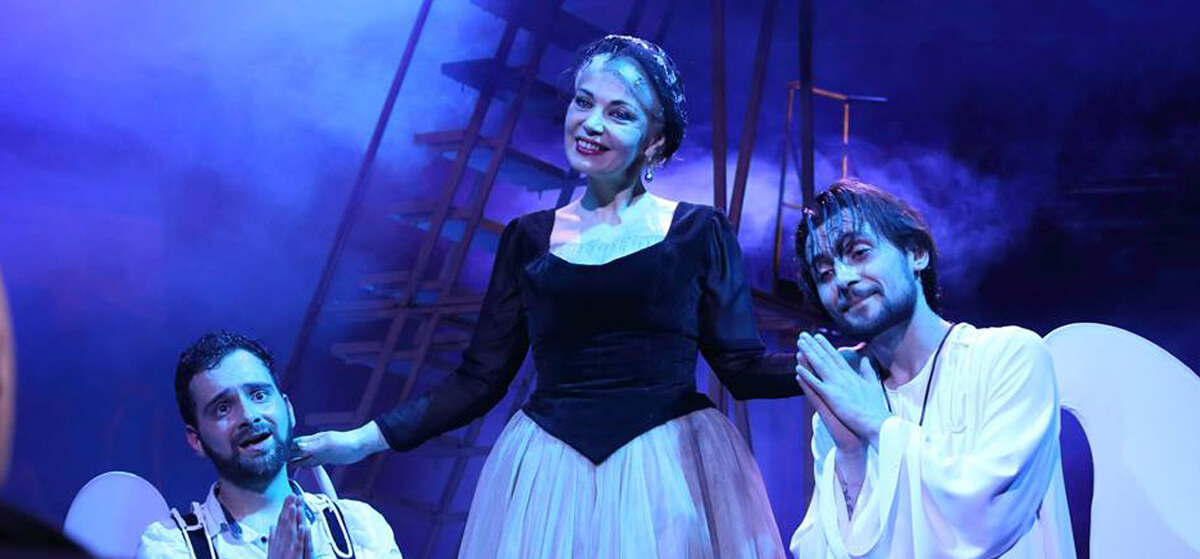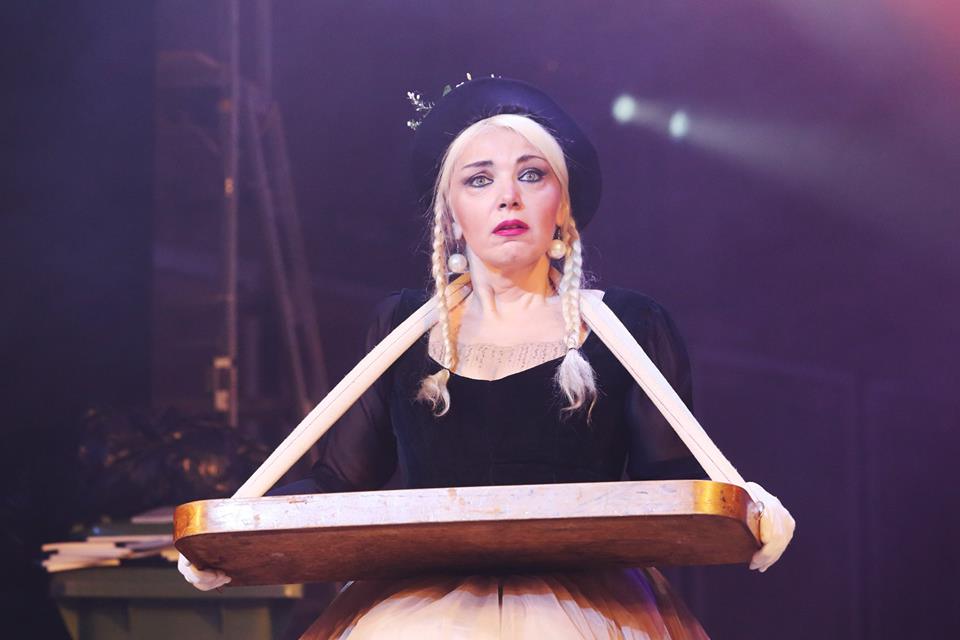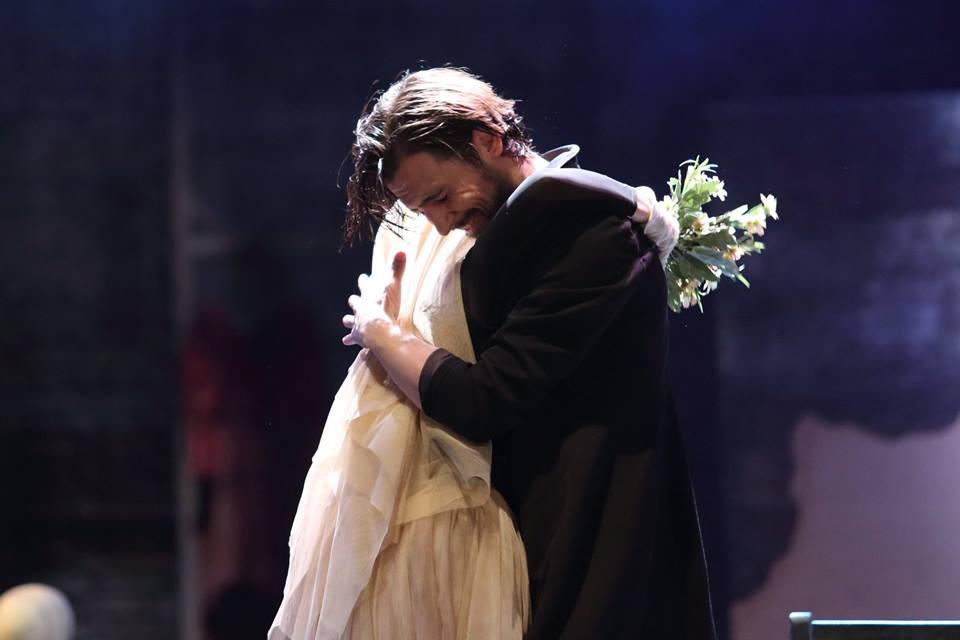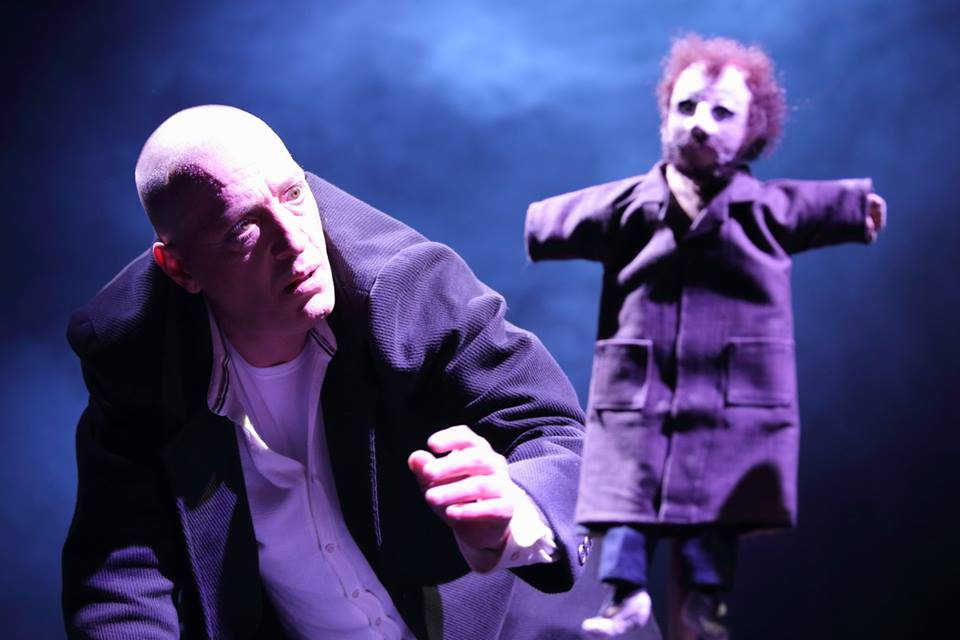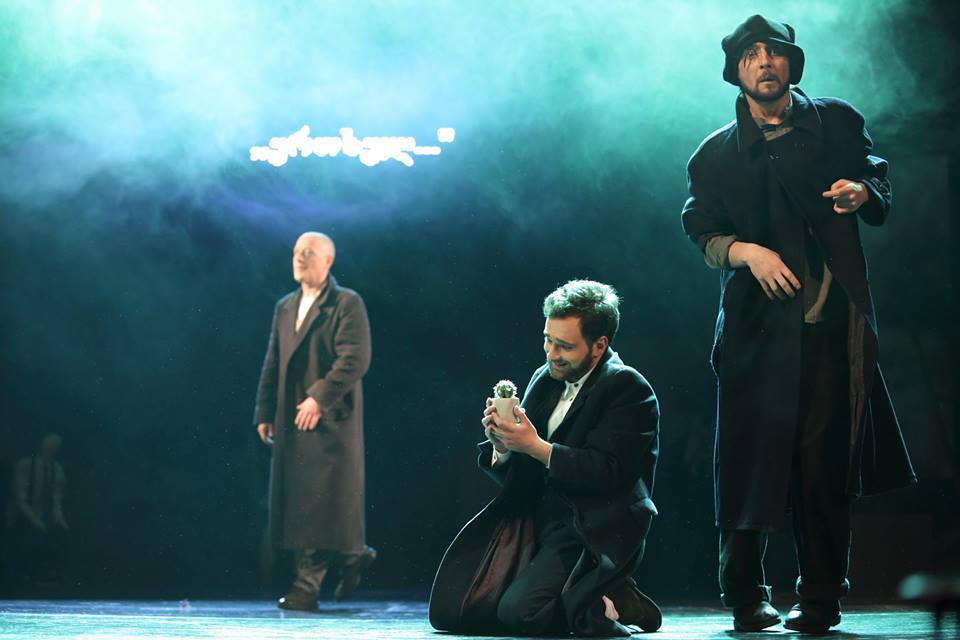Author
Director
costume designer
Composers
Choreographer
Assistant to director
About the performance:
"Yes, it is true that nowadays I often stage performances based on Georgian plays. In recent years, Georgia has been through a lot and I have had a burning desire to examine these very events. Everything may happen in a lifetime: good and evil sometimes might intertwine and we might lose control over common sense of what is happening around us. Although there are eternal values, the ultimate truth that never fades. Kindness is permanent, so is the evil. Sometimes the evil win but in the end, kindness overtakes the prize." Robert Sturua
With absurd elements, they are nevertheless hardly solely absurdist - yet also rarely spell out anything clear-cut. They are unusual stories - out of the ordinary, different from the expected -- and have to be approached with the understanding that they do not offer audience trite and easy lessons. They are odd, but often affecting; certainly, Akhvlediani's strange turns are always intriguing. The tales featuring Vano and Niko are simple and vignette-like, limited to symbolic essentials: Trees, houses, streets, sun, rain. There are no long descriptive paragraphs and the writing is almost entirely free of adjectives. There is also little character development. Vano is generally presented as gentle, kind and deferential; Niko is more impulsive and quick to anger. Over the course of the stories a struggle plays out between the two sides of human nature, but the relationship between Vano and Niko shifts from antagonistic to warm depending on the story. Riches lurk under the ostensibly simple surface. A selection of spare, parable-like tales, the performance certainly leaves space for the audience to join the dots.



